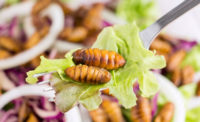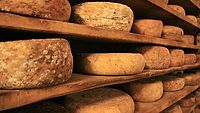Insects as a Protein Source? EFSA Says It Depends

A risk assessment published by the European Food Safety Authority (EFSA) has found that the use of insects as a source of protein in human and animal food depends heavily on how the insects were reared and processed.
As interest continues to grow regarding the potential benefits of using insects in food, the EFSA put together a working group that was tasked with analyzing the potential risks associated with the production, processing and consumption of bugs as an alternative protein source. The group looked at farmed insects used in food and feed, considering potential biological, chemical and environmental hazards as well as allergenicity.
The group concluded that, "The specific production methods, the substrate used, the stage of harvest, the insect species, as well as the methods used for further processing will all have an impact on the possible presence of biological and chemical contaminants in insect food and feed products."
Houseflies, mealworms, crickets and silkworms were found by the EFSA to have “the greatest potential for use as food and/or feed”, serving as healthy alternatives to beef, chicken and pork. The practice is also said to have environmental benefits since the farming of insects can lead to lower emissions of greenhouse gases and ammonia compared to that of cattle and pigs.
The assessment and its findings have been sent to the European Commission--the body who originally requested the EFSA to complete the assessment. The Commission is also partially funding another research initiative that will explore the feasibility of using insects in food, along with considering how to develop policy and regulations should the practice become an acceptable source of protein in food.
Looking for a reprint of this article?
From high-res PDFs to custom plaques, order your copy today!





